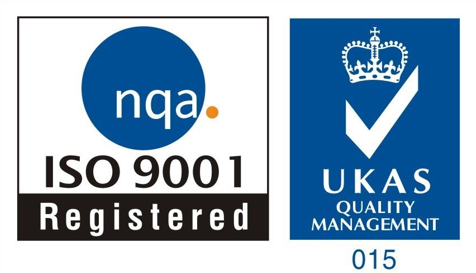What is the role of a software developer? We will describe the most frequent software development tasks and the salaries of programmers.
More...
What Does a Software Developer Do?
A software developer's responsibilities include software design, implementation, testing, and deployment. However, actual tasks may differ from company to company.
If a company has system analysts, the functional or logical part of the design will not be part of the software developers' job, because the system analyst's job is to understand business processes and needs and create a functional specification and logical system design based on them.
In this case, the software developer continues to perform designing tasks, but only designing tasks associated with implementation. Obviously, comprehension of business processes remains vital.
Similarly, if a tester is part of the project team, the software developer can focus on unit testing. As the tester is responsible for functional, integration, and performance testing, the software developer's testing responsibilities are limited.
If we were to summarize the role of a software developer, we could say that it is the developer's responsibility to implement the software according to the requirements and deploy it or deliver it for operation in a tested and functional state.
GET IN TOUCH
to Hire Software Developers


Software Developer Roles
This grouping below is based on job advertisements for software development positions.
There are a number of possible groupings, but I believe this one best illustrates what a software developer actually does. Let's see!

Front-End Developers
Front-End developers are software developers who write the code that runs on the user interface, in other words in the browser. Nowadays it usually means JavaScript developer.
Many people put an equal sign between front-end developers and JavaScript developers. Nowadays it might be true, but previously there were specific front-end solutions for both Java (Applet technology) and .NET (ASP.NET) platforms.

Backend Developers
These individuals are server-side programmers. Briefly, their goal is the creation of multi-layer applications on the server, the development of APIs, and the programming of database process execution. Because it appears on the user interface, the work of front-end developers is directly visible. In the meantime, backend developers are responsible for the software's background.

Full-Stack Developers
Front-end and back-end development by a single individual. Prior to the separation of the front-end and back-end, this was a completely common occurrence. However, after the separation of the front-end and back-end, the value of experts who are familiar with both ends of the production line increased.
In conclusion, a full-stack developer must understand the entire technology stack.

Mobile Developers
Mobile app developers create mobile games and applications. Android and iOS are the primary platforms supported. Their goal, while working closely with the designer, is to create the mobile applications designed.

Game Developers
Typically, they have specialized knowledge of gaming frameworks (Unity, Unreal engine, Ogre, etc.) or other languages (e.g. C++). Their goal is to create games for various platforms, including desktop, mobile, console, etc.

Data Scientist
A data scientist is a software engineer responsible for data analysis and processing. They analyze trends and statistics using techniques such as machine learning, deep learning, and data visualization. Currently, they are primarily proficient in SAS, R, Python, and SQL. In addition, they can utilize data or the data bank to improve the efficiency of the company.

Embedded Software Developer
Their software runs on specific hardware in medical devices, automobiles (ABS), robots, and other devices. Primarily C/C++ or assembly knowledge is required.

Web Developer
Web developers are software developers specializing in website development. HTML and CSS knowledge is essentially required. An excellent entry point into the world of software development.

DevOps Engineer
The DevOps engineer role was created by the union of development (Dev) and operations (Ops). They utilize various technologies, including Kubernetes, Docker, Apache Mesos, HashiCorp, and Jenkins.

Security Software Developer
Their goal is to develop and implement software that protects devices and data from data theft and intrusion.
If You Want To Be a Software Developer
Currently, it pays to be a programmer. However, if we may moralize a bit, is it worth your time to deal with something that you have no interest in? Does it make sense to sit in front of a computer every day and do something that is only moderately interesting while pretending to be productive?
Is this really your life's purpose? From an alternative view: do as you please! I can guarantee that you will live a life of splendor! Let's determine the knowledge, skills, and abilities necessary to become a brilliant software developer!
Required Knowledge, Skills, and Abilities
1. Interest in Software Development
If you want to become a software developer, interest is by far the most crucial factor. Even at a very high level, you can possess any of the following skills. If you lack interest in the field of IT, you will never become a competent software developer. However, if you feel that you possess only a few of the following skills and abilities, but you have a strong interest in software development, I am confident that you will find an IT position.
We've all heard countless tales of young men who honed their skills in a given software development field through self-education alone. Yes. This is the IT world. Would you be interested in working as a software developer? Do it! Develop, program, go! Because there is a lot of money to be made, are you considering becoming a developer? Do not do it! Never will you be good! You can earn money, but you will not be happy.
There are areas within IT where companies are primarily interested in one thing: what you have done and what you know. Which domains are these? For example, game development. I've never encountered an IT company specializing in game development that didn't want to see your previous gaming projects. They are more interested in you than they are in your degree, abilities, or any other skills. "Show me what you've done so far!"
2. IT Degree
The vast majority of software developers have a university degree. A degree alone is not sufficient to guarantee that you are a good developer, but it is sufficient to demonstrate that you have the necessary professional foundations.
I have participated in countless debates in the past regarding whether a degree is required for software development. Typically, the conclusion was that it is advantageous and required for the majority of jobs. Nonetheless, it is possible to be a brilliant software developer without a degree, especially if you have sufficient knowledge to make the degree irrelevant.
If you want to develop software, my recommendation is to just do it! Do it, learn to program as soon as possible! Obtain an IT degree if you intend to build a corporate career!
Let's discuss retraining a little! Many people retrain themselves to become software developers from entirely different professions today. According to our experience, only a tiny fraction of the retrained workforce becomes a valuable asset in the IT labor market. Who are the lucky ones? Those who discover a new hobby through learning software development. There are such individuals; I am acquainted with a number of such programmers. The first 1 to 3 years are challenging because they must prove their knowledge and gain acceptance, but after that, it mostly matters what type of project experience they have acquired.
The most important objective for retrained IT professionals should be to gain as much project experience as possible in the first few years. After the first few years, their life will become simpler and their salary will increase significantly.
3. English Knowledge
In short: essential. On the Internet, all IT information (or at least 90 percent of IT information) is available in English. You cannot work as a software developer if you cannot interpret this information.
The ability to speak English is a different matter. There are jobs where it is actually required, such as when you must consult with a native English speaker client. In other cases, however, the level that cannot be lowered is the comprehension and interpretation of the written text.
4. Learning Capability
Well, you cannot do it without the capability to learn. It is essential for a software developer to be able to acquire new knowledge. Indeed, knowing more is not enough, you must also want to know more. Of course, I can partially refute this by stating that if you master a programming language whose development has ceased (e.g., Cobol, VB, etc.), you can still be a very valuable and useful developer. However, learning this "first" programming language also requires the ability to learn.
5. Problem-Solving Skills
The first step is to understand the problem. You can only solve a problem or complete a task successfully if you have a thorough understanding of it, its weight, who it affects and how, and what requirements must be met. This may require a great deal of knowledge, communication, and empathy.
After receiving the information, you must be able to outline potential solutions, consider them, evaluate them, and select the best option. Throughout software development, you are constantly in a mode of problem-solving. You plan, evaluate, implement, test, and measure back. This requires serious levels of patience, humility, tranquility, and concentration.
You may also encounter problems that you did not anticipate, the resolution of which will consume a great amount of time. Without maintaining composure, you will go insane or burn out. As a programmer, have you ever been so frustrated that you wanted to pull out your hair?
How to Become a Software Developer?
It's a common question, so I figured I'd provide some insight. Obviously, there are numerous alternatives, and I do not believe that the following is the only viable option.
1. Learn a Programming Language!
Easy to say. Yes, but it is not difficult to accomplish. If you have never programmed before, the initial steps can be somewhat challenging. But trust me, learning a programming language is not like studying atomic physics. Just go for it, and get started!
Which programming languages do you need to choose? This article contains a video that provides an overview of the most popular programming languages. Check it out to obtain a comprehensive understanding of programming languages. Moreover, if you are interested in a specific field, you should conduct an Internet search to determine which programming language is most widely used in that field. Determine what you want to create and begin with the proper language!
2. Program!
If you wish to become a software developer, you must develop software. It is not worthwhile to spend many months accumulating theoretical knowledge; there will be time for that later. Start with the simplest programs and objectives that are the easiest to achieve. Define precisely what you wish to create. And if possible, avoid making a global MMORPG for the first time as a primary objective, as it will never be completed.
Be concrete, straightforward, and success oriented. After that, you can gradually raise your expectations.
3. Find Out What Exactly Interests You Within IT!
I was fortunate enough to speak with a senior IT specialist when I graduated college. What makes sense to do within IT was my question.
He put it this way: "It is insufficient to simply refer to software development as a field; a domain must also be specified. Finance, banking, telecommunications, etc. Together, it makes sense to discuss financial IT, banking software development, or telecommunications developments!"
I believe it was excellent advice, and I am grateful for it to this day. Nonetheless, if I had to decide today exactly what I would do in IT, I would recommend the following: "Keep some self-awareness and recognize what most interests you. Which area would you be willing to handle at 10:00 p.m.? What is your hobby in the meantime? If you have the answer, just do it!"
4. Complete a University!
If you know and use a programming language, you also know which domain interests you the most, but you don't have a degree yet, then I suggest you get one.
If you know and use a programming language, you also know which domain interests you the most, but you don't have a degree yet, then I suggest you get one. It can be important at any stage of your career, as it is also important to employers where you graduated. Based on this, it is much easier to evaluate the possible knowledge and level of knowledge than in a job interview. On the other hand, not everyone can be Elon Musk, nor do all employers seek him.
5. Don't Jump Around! Do What Interests You!
Final advice: do not flit from flower to flower like a bee! It looks terrible on your resume as time passes. Work on a project that interests you, and use technology that is beneficial and important to you! Dive in and enjoy software development, which in my opinion is a real treasure for those who like to create and then look back with satisfaction on their work.
What is The Ideal Entry-Level Software Development Job?
Well, yes, there are a small number of open entry-level software development positions. The majority of employers seek experienced, specifically mid-level or senior-level software developers. But there is hope, so relax! As the number of experienced developers dwindles, an increasing number of businesses are hiring juniors and training them rather than going without any developers.
I am often asked for advice by software developers who have recently graduated. "Where can I get a job?" "What should I do, which programming language should I learn to develop properly?" Many such and similar questions are received.
If you are a junior software developer, you should familiarize yourself with as many technologies as possible and gain experience in them, in my opinion. In addition, there must be at least one programming language in which you have deep knowledge. It could be anything. Java, C/C++, Python, Angular, React. The point is to gain as much experience as possible in the first 1-2 years.
Here at Bluebird, we aim for the first-year software developers who work on our projects to gain experience with as many and as serious programming languages and architectures as possible. Even if the development takes more time and costs more in the project because of this. Our employees should be as qualified as possible, this is my objective.
Choose a company where you can gain relevant work experience if you are an entry-level employee. The goal is to reach the point where you can say, "I'm an experienced developer," regardless of how much you earn in the early years. After these years, you can work on any project of your choosing.
Do You Need a Software Developer?
You're not alone. The trend in the software development labor market is an increasing demand for developers. In the previous decades, software developers also began working for organizations whose core business was not software development. This is due to the fact that if an activity is of great significance, businesses will always want to deal with it internally. Every company had at least one or two developers, and frequently development teams as well.
But the trend appears to be reversing due to the extreme difficulty in retaining developers and the high cost of labor. As a post-COVID trend, businesses began to keep their core competencies in-house while outsourcing the rest. In this context, "rest" refers to software development. Many of our clients have entrusted us with the responsibility of developing their internal systems or even outsourcing the software development team as well. We do the development, and they deal with their primary tasks.
But let's see if you need a software developer, what solutions we can offer you:
1. Time-and-Material based Contract (IT Staff Augmentation)
In the context of recruitment, you are seeking your future coworker if you are searching for an employee.
In contrast, there is no point in hiring an IT specialist if you need additional expertise on a project.
In this case, the most efficient course of action is to request a software developer who can perform the software development tasks for the duration of the project (6-9-12 months). We guarantee that our existing or newly-hired senior software developer will carry out his responsibilities on the project, and we expect you to pay us a daily fee for his services.
In other words, you are only required to pay for the amount of work that was put into the project.
What occurs once the project is finished? Our software developer continues working on a different project.
More details: IT Staff Augmentation
GET IN TOUCH
for Staff Augmentation
GET IN TOUCH
with our Software Development team
2. Fixed Price Software Development
If you believe that the scope of the project to be implemented can be determined, then we will be happy to give you an offer to complete the entire software development task.
Moreover, if you are considering outsourcing the entire software development because it is more important to you that the developments are implemented than how they are carried out in-house, let us know and we will be glad to discuss the options with you.
Many of our partners agree that it would be much more convenient and advantageous for them if Bluebird carried out the development.
Software development can also be interesting if you need a web application, mobile application, or website created.
In this case, after meeting the requirements, we provide a detailed technical proposal along with a detailed price estimate.
More details can be found here: IT Solutions
Most popular programming languages
Let's see which are the most popular programming languages and how their popularity has changed over time! I think it's worth watching the part after 2010 (the video starts from there).
Source: Datalover - Youtube: https://www.youtube.com/watch?v=M0vBoBqqjr0&t=3s
Bluebird has been selected among the Top Nearshore Software Development Companies by Designrush.



